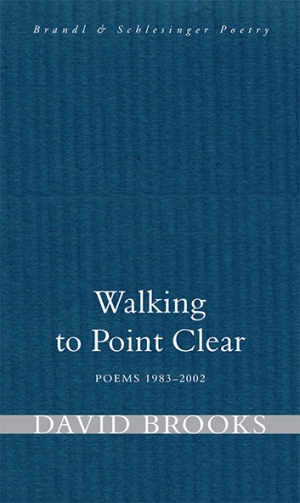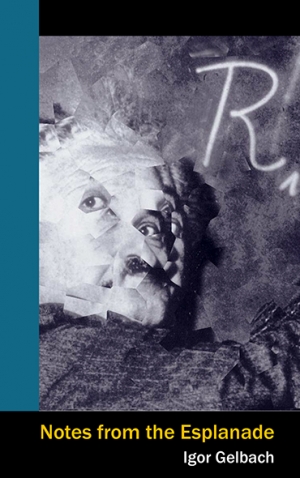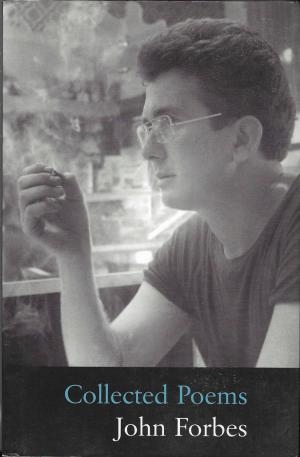Brandl & Schlesinger
Greg Kratzmann reviews ‘The Universe Looks Down’ and ‘Read It Again’ by Chris Wallace-Crabbe
Chris Wallace-Crabbe’s essay ‘Poetry and the Common Language’, in his collection Read It Again, begins: ‘If there is one thing we can say about poetry, it is this: like it or not, poetry turns out to be something special, an intensified bag of tricks with certain rules of its own.’ The deceptively casual style of the writing underscores its argument about the centrality of ‘voice’ in any poem (or essay) worth its salt: ‘interest, in poetry, is not only interesting, to put it very mildly; it also adds value. It lifts the game; often because it artistically combines an air of untidy casualness with lightly strategic effects which displace or realign us as we read.’
... (read more)Most of a lifetime ago, I read of an exhibit at the Bell Telephone headquarters. It consisted of a box from which, at the turning of a switch, a hand emerged. The hand turned off the switch and returned to its box. If this struck me as sinister, it was because the gambit seemed emblematic of human perversity – of a proneness to self-annulment ...
... (read more)Sarah Kanowski reviews 'The Singing' by Stephanie Bishop and 'The Patron Saint Of Eels' by Gregory Day
The Singing is the inaugural publication in the Varuna Firsts series, a collaboration between the Varuna Writers’ House and Brandl & Schlesinger. Both should be applauded for bringing a distinctive new voice into Australian writing; not to mention the honour due to the prodigious talent of Stephanie Bishop herself. Bishop has written a haunting novel with a seemingly simple story: love gone awry. A woman runs into an ex-lover on the street (neither protagonist is named), and this meeting throws her back into the story of their past. The two narratives – her solitary life now and the tale, mainly, of the relationship’s end – run in parallel. The novel’s energy, however, is ruminative rather than linear, circling around the nature of their love, pressing at the bruises left by its collapse.
... (read more)David Gilbey reviews ‘Walking To Point Clear: Poems 1983–2002’ by David Brooks
At first, many of these forty-eight poems from two decades struck me as almost self-indulgent and mundane: short lyrics about family life, eating, drinking, dreaming of Valparaiso, lemons, the Molonglo River; though there was often an underside of premonition, discontent, and a stillness that made me think I hadn’t really understood. In the first group, ‘One Hundred Nights’ bothered me: ‘When will it end / this waking / while others sleep, / this herding out on the ghost fields? / the flesh / whispering / its impossible desires / the bones / murmuring their Kali mantra / love, emptiness / love, emptiness.’ However, on my next reading, some of the second group struck me with autumnal clarity. From ‘Brown Pigeon’: ‘eyes / plucked out, feathers / scattered, / maggots / when I turn it over / writhing in the black mess near the heart’, where the image of the dead bird is an iconic memento mori.
... (read more)Judith Armstrong reviews ‘Notes from the Esplanade’ by Igor Gelbach
There is a wonderful sense of liberation in the title of this short novel: a sense of being able to gaze at a distant blue horizon and sniff salty sea air. It provides an exhilarating contrast with the atmosphere of claustrophobia suggested in Notes from Underground, Dostoevsky’s work of similar length and loosely comparable themes. But whereas the Underground Man rarely ventures into the street and never strays far from St Petersburg’s Nevsky Prospekt, the nameless protagonist of lgor Gelbach’s tale moves constantly between Leningrad, Moscow and Sukhumi. Sukhumi is a Georgian resort town on the Black Sea, where Rubin, a theatre director and friend of the dilettante narrator, owns a little-used apartment. Rubin prods our narrator to stay in it and enjoy the sun, the palm trees, the esplanade and the coffee, but also to write a novel about a certain theoretical physicist called Paul Ehrenfest. Ehrenfest was one of the circle surrounding Albert Einstein in the early years of the twentieth century when Einstein spent five years in St Petersburg. The narrator is not averse to the project, but even when he occupies the Sukhumi apartment, the muse remains elusive.
... (read more)Kevin Brophy reviews 'City and Stranger' by Aileen Kelly, 'In Your Absence: Poems 1994–2002' by Stephen McInerney, and 'Flying Blind' by Deborah Westbury
‘Some meteorites make it to the surface simply because they’re so small that they literally float to the ground. There are thousands of these interplanetary particles in the room you’re in now, stuck to your clothes, in your hair, everywhere.’ This startling piece of information introduces Aileen Kelly’s ‘Notes from the Planet’s Edge’ in her new book, City and Stranger (Five Islands Press, $16.95 pb, 88pp), whose cover features Russell Drysdale’s iconic image of Woman in a Landscape. This bushwoman, then, is stuck with interplanetary particles or, as Kelly puts it, ‘the invisible sift of space’. Drysdale’s woman is transformed from the Australian legend in the dirt-coloured smock, wearing those oddly impractical white shoes, into a figure framed by an immense and moving universe. We look for this in poetry – the breaking of frames, the pleasure of surprise and discovery, and the contest between language and experience.
... (read more)Martin Duwell reviews 'By and Large' by Chris Wallace-Crabbe
Chris Wallace-Crabbe’s new book, By and Large, is, despite its hundred pages, a thinner book than most of his recent volumes. The familiar features are there: a baroque and intense intellectual ambit combined with playfulness; a deep love of the sharp ‘thinginess’ of the world combined with a love of the expressiveness of the words we use to contain it; and, last but far from least, enjoyable phrasemaking. It is just that, in By and Large, the reader’s pleasure seems more attenuated.
... (read more)Ivor Indyk reviews 'Collected Poems, 1970–1998' by John Forbes
One of the benefits of a Collected is that it places individual poems within the context of the poet’s whole oeuvre, with often dramatic consequences for their interpretation. When Leonie Kramer brought out David Campbell’s Collected Poems in 1989, more than half of the volume was made up of poems written in the last decade of the poet’s life ...
... (read more)Many see John Tranter as an important, if slightly peripheral, figure in contemporary Australian poetry. He is well known for his long involvement in the Sydney poetry scene, as well as for his role as an editor, particularly for his editing, with Philip Mead, of the Penguin Book of Modern Australian Poetry (1991) and, more recently, of the internet poetry journal Jacket.
... (read more)Chris Wallace-Crabbe reviews 'Damaged Glamour' by John Forbes
The poet John Forbes died suddenly in January 1998. He was not glamorous, but his work was, for reasons that are not immediately apparent. Certainly, he was the most accomplished, along with the immensely learned Martin Johnston, of the young poets who swam into orbit in the 1970s. He was also the writer who most convincingly bridged the gap between a radical art and the relatively conservative, yet difficult, kinds of cultural theory which are expounded in the universities. Such newly collected poems as ‘post-colonial biscuit’, ‘Ode to Cultural Studies’ and ‘Queer Theory’ body forth, in their disembodied way, this concern to be a bridge-maker between academic talk and the melodious realms of poetry.
... (read more)








